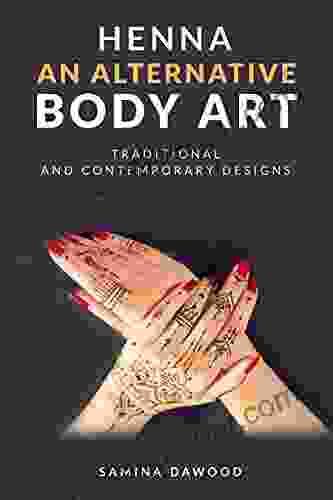British Diplomacy and the Iranian Revolution 1978-1981: Security, Conflict and Alliances

The Iranian Revolution of 1978-1981 was a watershed moment in the history of the Middle East. The overthrow of the Shah and the establishment of an Islamic republic had a profound impact on the region and beyond. For Great Britain, the revolution posed a number of challenges, both in terms of its security interests and its relationship with Iran.
4 out of 5
| Language | : | English |
| File size | : | 680 KB |
| Text-to-Speech | : | Enabled |
| Screen Reader | : | Supported |
| Enhanced typesetting | : | Enabled |
| Word Wise | : | Enabled |
| Print length | : | 355 pages |
This article explores the complex relationship between British diplomacy and the Iranian Revolution. Drawing on a wealth of archival research, it examines the British government's efforts to navigate the turbulent events of the revolution, maintain its strategic interests in the region, and preserve its relationship with the Iranian regime. The article argues that British diplomacy was shaped by a number of factors, including the legacy of colonialism, the changing geopolitical landscape of the Middle East, and the domestic political constraints faced by the British government. It also highlights the role of key individuals, such as Prime Minister Margaret Thatcher and Foreign Secretary Lord Carrington, in shaping British policy towards Iran.
The Legacy of Colonialism
The relationship between Britain and Iran has a long and complex history. In the 19th century, Britain played a major role in the Qajar dynasty's modernization efforts. However, British influence in Iran also led to a number of grievances, including the Anglo-Persian Oil Company's monopoly over Iran's oil industry. These grievances contributed to the rise of Iranian nationalism and anti-British sentiment.
The legacy of colonialism continued to shape British diplomacy towards Iran after World War II. The British government was concerned about the spread of Soviet influence in Iran and sought to maintain its own influence in the region. However, British attempts to prop up the Shah's regime were seen by many Iranians as a continuation of colonial rule. This only served to further alienate the Iranian people and make the revolution more likely.
The Changing Geopolitical Landscape
The Iranian Revolution also took place at a time of significant change in the geopolitical landscape of the Middle East. The collapse of the Soviet Union and the end of the Cold War led to a new era of uncertainty and instability in the region. This made it more difficult for Britain to maintain its traditional role as a regional power.
The British government was also concerned about the rise of Islamic fundamentalism in Iran. The Iranian Revolution was seen as a potential threat to British interests in the Middle East, as well as to the global Free Download. This led the British government to adopt a more cautious approach to its relations with Iran.
Domestic Political Constraints
In addition to these external factors, the British government's policy towards Iran was also shaped by domestic political constraints. The Conservative government of Margaret Thatcher was elected in 1979 on a platform of economic austerity and a tough stance on foreign policy. This made it difficult for Thatcher to commit to a large-scale military intervention in Iran, even if she had wanted to.
The British government was also constrained by public opinion. The British people were generally opposed to military intervention in Iran. This made it difficult for Thatcher to take any action that could be seen as provocative or aggressive.
Key Individuals
The role of key individuals also played a significant role in shaping British policy towards Iran. Prime Minister Margaret Thatcher was a strong supporter of the Shah and initially resisted calls for his overthrow. However, she eventually came to the that the Shah's regime was no longer viable and that the British government needed to adapt to the new reality in Iran.
Foreign Secretary Lord Carrington was a more cautious figure than Thatcher. He was concerned about the potential consequences of military intervention in Iran and favored a more diplomatic approach. Carrington eventually resigned from his post in protest at Thatcher's decision to support the US-led invasion of Grenada in 1983.
The British government's policy towards the Iranian Revolution was shaped by a number of factors, including the legacy of colonialism, the changing geopolitical landscape of the Middle East, domestic political constraints, and the role of key individuals. The British government ultimately adopted a cautious approach to the revolution, seeking to maintain its strategic interests in the region while avoiding military confrontation. However, the revolution had a profound impact on British-Iranian relations and continues to shape British policy towards Iran today.
About the Author
Dr. Richard Dalton is a historian of British foreign policy. He is the author of several books, including British Diplomacy and the Iranian Revolution 1978-1981: Security, Conflict and Alliances.
4 out of 5
| Language | : | English |
| File size | : | 680 KB |
| Text-to-Speech | : | Enabled |
| Screen Reader | : | Supported |
| Enhanced typesetting | : | Enabled |
| Word Wise | : | Enabled |
| Print length | : | 355 pages |
Do you want to contribute by writing guest posts on this blog?
Please contact us and send us a resume of previous articles that you have written.
 Book
Book Novel
Novel Page
Page Chapter
Chapter Text
Text Story
Story Genre
Genre Reader
Reader Library
Library Paperback
Paperback E-book
E-book Magazine
Magazine Newspaper
Newspaper Paragraph
Paragraph Sentence
Sentence Bookmark
Bookmark Shelf
Shelf Glossary
Glossary Bibliography
Bibliography Foreword
Foreword Preface
Preface Synopsis
Synopsis Annotation
Annotation Footnote
Footnote Manuscript
Manuscript Scroll
Scroll Codex
Codex Tome
Tome Bestseller
Bestseller Classics
Classics Library card
Library card Narrative
Narrative Biography
Biography Autobiography
Autobiography Memoir
Memoir Reference
Reference Encyclopedia
Encyclopedia Sandy Sanders
Sandy SandersS B
 Steve Tomashek
Steve Tomashek Sherry Lance
Sherry Lance Roland Denzel
Roland Denzel Toby Haberkorn
Toby Haberkorn Sean Kelly
Sean Kelly Plumb
Plumb Thomas Prugh
Thomas Prugh Rodney Smith
Rodney Smith Roger Howard
Roger Howard Wes Crenshaw
Wes Crenshaw Sandra A Crowe
Sandra A Crowe Steven Rea
Steven Rea Shailaja Kalelkar Parikh
Shailaja Kalelkar Parikh Robert Carroll
Robert Carroll William R Russell
William R Russell Sylvia Abraham
Sylvia Abraham Rotimi Akinsete
Rotimi Akinsete Seth J Frantzman
Seth J Frantzman
Light bulbAdvertise smarter! Our strategic ad space ensures maximum exposure. Reserve your spot today!
 Jordan BlairFollow ·15.4k
Jordan BlairFollow ·15.4k Ryan FosterFollow ·12.5k
Ryan FosterFollow ·12.5k Eric HayesFollow ·3.2k
Eric HayesFollow ·3.2k Mikhail BulgakovFollow ·15.4k
Mikhail BulgakovFollow ·15.4k Allen GinsbergFollow ·19.6k
Allen GinsbergFollow ·19.6k Jules VerneFollow ·7.3k
Jules VerneFollow ·7.3k Ken SimmonsFollow ·2.5k
Ken SimmonsFollow ·2.5k Aleksandr PushkinFollow ·5.1k
Aleksandr PushkinFollow ·5.1k

 Colt Simmons
Colt SimmonsLarge Collieries Iron Mines Stone Iron And Tinplate...
Step back in time and witness...

 Zachary Cox
Zachary CoxUnlocking the Secrets of Woody Plants: An In-Depth...
: Embark on a captivating journey into the...

 Yasunari Kawabata
Yasunari KawabataIntroducing 'Librarian Guide: 3rd Edition' – The Ultimate...
In the dynamic and ever-evolving...

 Jerome Blair
Jerome BlairEvading Honesty: A Masterful Exploration of Deceit and...
Prepare to be captivated...

 Timothy Ward
Timothy WardLove Is Real: A Novel of Love, Loss, and the Enduring...
Prepare to embark on a...
4 out of 5
| Language | : | English |
| File size | : | 680 KB |
| Text-to-Speech | : | Enabled |
| Screen Reader | : | Supported |
| Enhanced typesetting | : | Enabled |
| Word Wise | : | Enabled |
| Print length | : | 355 pages |














